Throughout my career journey in business and in higher education, emotional intelligence has been a cornerstone of my success. From my early days in the competitive beverage industry to my current role as a faculty member of the University of Arizona Global Campus (UAGC), I have seen firsthand the impact that emotional intelligence, also known as EQ, can have on relationships, team dynamics, and overall success, and I am excited to share this knowledge with you in this blog.
I first encountered the concept of emotional intelligence during my time in the PepsiCo system, where, as an executive, I learned how it pertained to business and leadership, particularly the importance of capability selling. Understanding the needs and wants of clients required me to step into their shoes and recognize their emotions. This skill became foundational in my career, and I am confident that if you embrace the principles of EQ that I have laid out here, you, too, will witness the benefits.
As you continue to develop your emotional intelligence, you will discover you can create environments where individuals and organizations flourish. By understanding and applying the principles of emotional intelligence, you will be able to lead with care, empathy, compassion, and effectiveness in any endeavor.
So, what exactly is emotional intelligence, and how can you learn and improve your EQ? In this article, I will go over what emotional intelligence is, why emotional intelligence is important, the different dimensions of E, and steps you can take to improve your emotional intelligence. Read on to discover the benefits and how you can develop your own EQ.
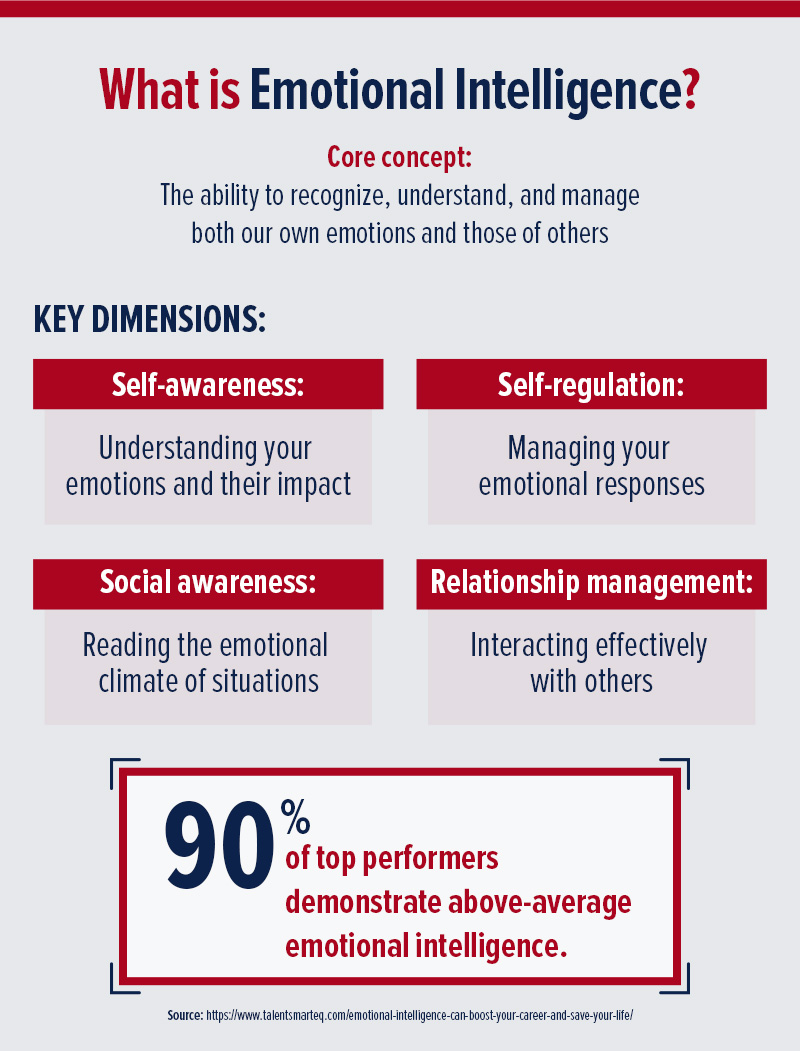
What is Emotional Intelligence (EQ)?
Emotional intelligence (EQ) refers to the ability to recognize, understand, and manage our own emotions and the emotions of others. It plays a crucial role in leadership and organizational success. A high EQ allows leaders to foster strong relationships, create positive work environments, and drive team performance. This is true in business and education.
Why is Emotional Intelligence Important in Business and Leadership?
In the fast-paced world of business, understanding emotional intelligence is vital. It enables us to navigate complex social dynamics, understand team members’ needs, and respond to challenges with empathy and adaptability. Leaders with high emotional intelligence can motivate their teams, enhance collaboration, and ultimately achieve better outcomes.
Common Misconceptions About Emotional Intelligence
As we explore the significance of emotional intelligence, it’s essential to address some common misconceptions. One prevalent belief is that emotional intelligence is merely about being "nice" or overly emotional. EQ encompasses a range of skills, including self-regulation, empathy, and effective communication. It’s not about suppressing emotions, but rather, it’s about understanding and managing them to enhance personal and professional interactions.
Another misconception is that emotional intelligence cannot be improved. While some individuals may have a natural inclination toward high EQ, it is indeed a skill that can be developed through practice and intentionality.
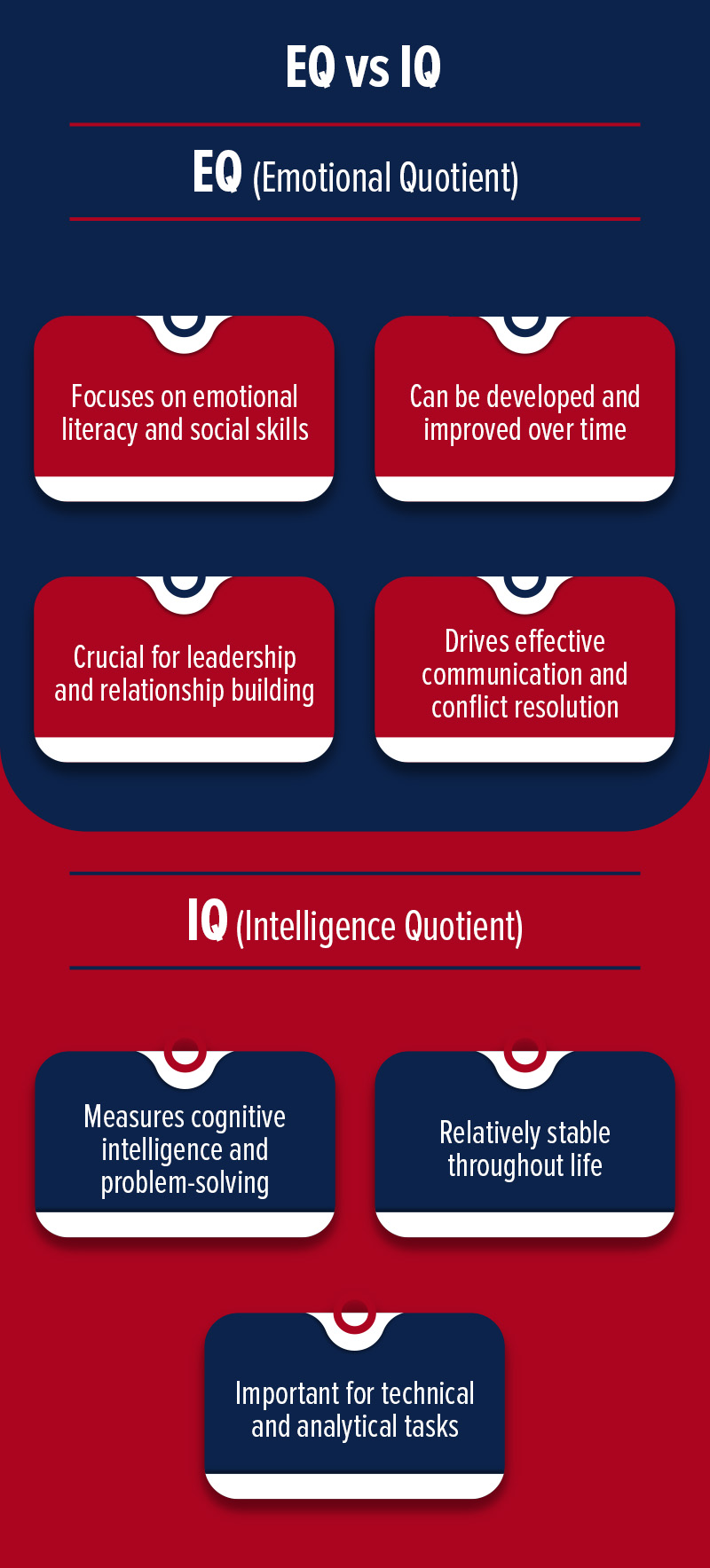
The Value of Emotional Intelligence in Business and Leadership
Emotional Intelligence is particularly important for leaders. It allows them to connect with their teams on a deeper level, fostering a culture of collaboration. Leaders with high EQ can manage conflicts effectively, inspire others, and create an environment where everyone can thrive.
How to Measure EQ
Measuring emotional intelligence (EQ) in a business context can be approached through various methods, each providing unique insights into an individual's emotional competencies. One effective way to assess EQ is through structured surveys and self-assessment tools, such as the Emotional Quotient Inventory (EQ-i) or the Mayer-Salovey-Caruso Emotional Intelligence Test (MSCEIT). These tools can quantify emotional skills, offering a baseline for comparison and development. Additionally, observation plays a critical role in assessing EQ, particularly in team settings. By observing interactions during meetings or collaborative projects, leaders can gauge how individuals manage emotions, demonstrate empathy, and handle conflicts. One-on-one conversations can also provide valuable qualitative data; these discussions allow leaders to explore emotional awareness and regulation in depth. Finally, performance indicators — such as team satisfaction surveys, employee retention rates, and conflict resolution outcomes — can serve as indirect measures of emotional intelligence within the organizational culture.
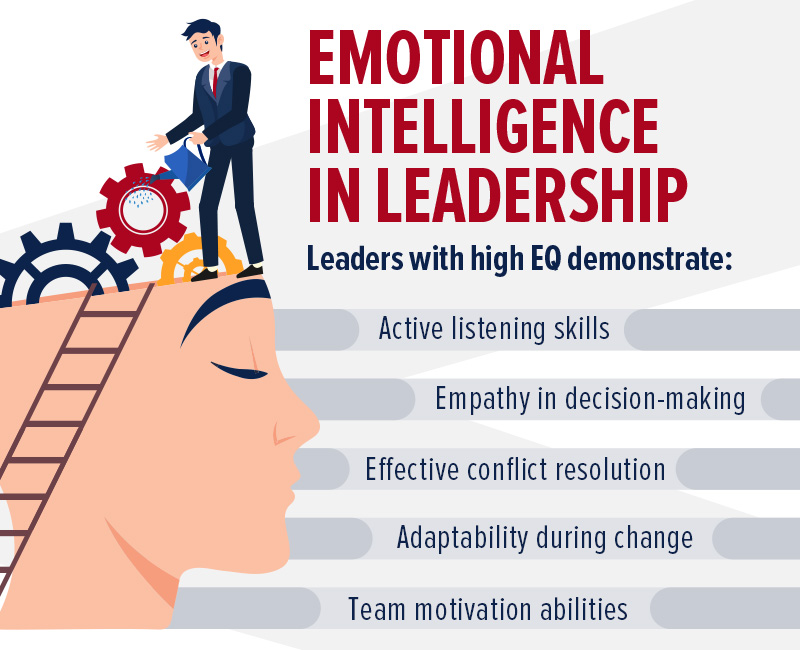
What are the Attributes of Emotional Intelligence?
Emotional intelligence (EQ) encompasses several key attributes that are essential for effective leadership and fostering a collaborative environment. Among these attributes, self-awareness stands out as the ability to recognize and understand one’s own emotions, strengths, and weaknesses. This understanding allows leaders to manage their reactions and set a positive tone for their teams. Empathy is another critical component, enabling leaders to connect with their team members on an emotional level, understand their perspectives, and respond to their needs effectively. Furthermore, social skills, which include effective communication and conflict resolution, play a vital role in building strong relationships and a cohesive team dynamic.
Another important attribute of emotional intelligence is emotional regulation, which allows leaders to manage their emotions and maintain composure, especially in challenging situations. This skill helps in creating a stable and supportive environment where team members feel safe to express their thoughts and concerns.
Additionally, situational awareness — being attuned to the emotional climate of a group — enables leaders to respond appropriately to the dynamics at play, facilitating a culture of collaboration and trust. Want to learn more about emotional intelligence? You may want to explore this source: Daniel Goleman's Emotional Intelligence, which provides insights from one of the leading experts in the field.
The Downside of Low Emotional Intelligence
Low EQ can hinder organizational performance, so it’s important to recognize the ways in which low emotional intelligence can manifest. Some signs of low EQ include poor communication, lack of empathy, and difficulty in managing relationships. Such challenges can hinder organizational performance and employee satisfaction. By recognizing the signs of low EQ, leaders can take steps to improve their emotional skills and foster a healthier workplace.
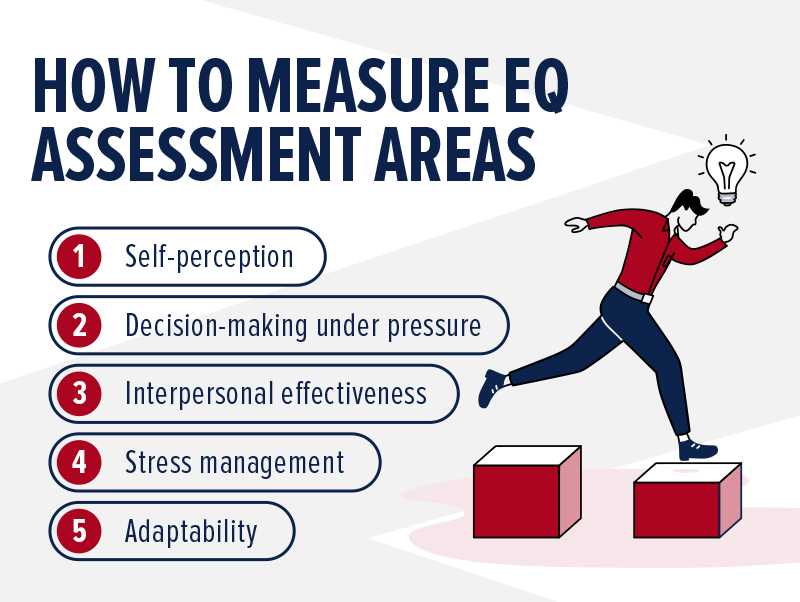
The Four Dimensions of Emotional Intelligence
The four (dimensions of Emotional Intelligence (EQ) include the following:
- Self-awareness: The journey to a stronger EQ begins with self-awareness. Understanding my strengths and weaknesses allowed me to build self-confidence and make informed decisions. By developing your self-awareness, you will learn to evaluate your performance accurately and recognize how your actions affect others.
- Social awareness: I became socially aware by empathizing with colleagues and clients. This skill helped me analyze situations effectively and respond to the emotional cues of others. By becoming more socially aware, you will enhance your ability to serve as a transformational servant leader.
- Self-management: Managing my emotions has been a key aspect of my leadership style. By practicing emotional self-control and maintaining a positive attitude, you will be able to navigate challenges with resilience and adaptability.
- Relationship management: Building strong relationships has always been a priority. By focusing on developing others, fostering teamwork, and collaborating with colleagues, you will create a culture of support and empowerment — both in business and education.
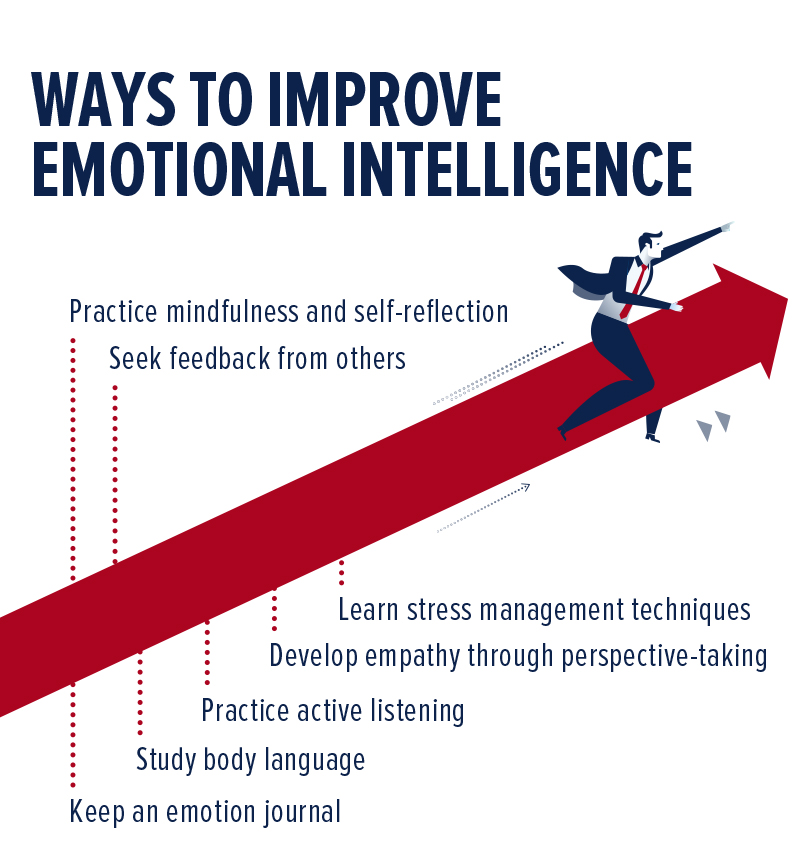
In the profit centers I operated and in the markets I served, my teams and I practiced relationship marketing, professionally serving and selling in our B2B distribution channels. We understood capabilities selling and our clients’ needs and preferences. I educated and equipped my teams for success by educating them in workshops and in the field, working with them one-on-one. I would lead by example and educate them to understand and apply total quality management, customer service, and emotional intelligence principles. Internally, we applied these methods across departments and teams, positively impacting all stakeholders. In the trade, we practiced and applied EQ and relationship marketing principles in our B2B selling at top, mid, and front-line levels of the organizations we served and with which we conducted business. This strategy ensured our customers' success, and it enhanced the success of our organization. We modeled consistency, and we positively impacted key business drivers such as sales, profits, growth, asset utilization, and people.
How Can We Improve Our Own Emotional Intelligence?
Improving emotional intelligence is a continuous process, but with practice, it’s possible to increase your EQ. Here are some actionable steps to improve your emotional intelligence:
- Practice self-reflection: Regularly evaluate your emotions and behaviors. Recognize patterns that may hinder your effectiveness.
- Seek feedback: Openly ask for feedback from peers and mentors to gain insights into how your actions impact others.
- Develop empathy: Engage in active listening and practice seeing situations from others' perspectives.
- Enhance communication skills: Clear communication fosters understanding and builds trust within teams.
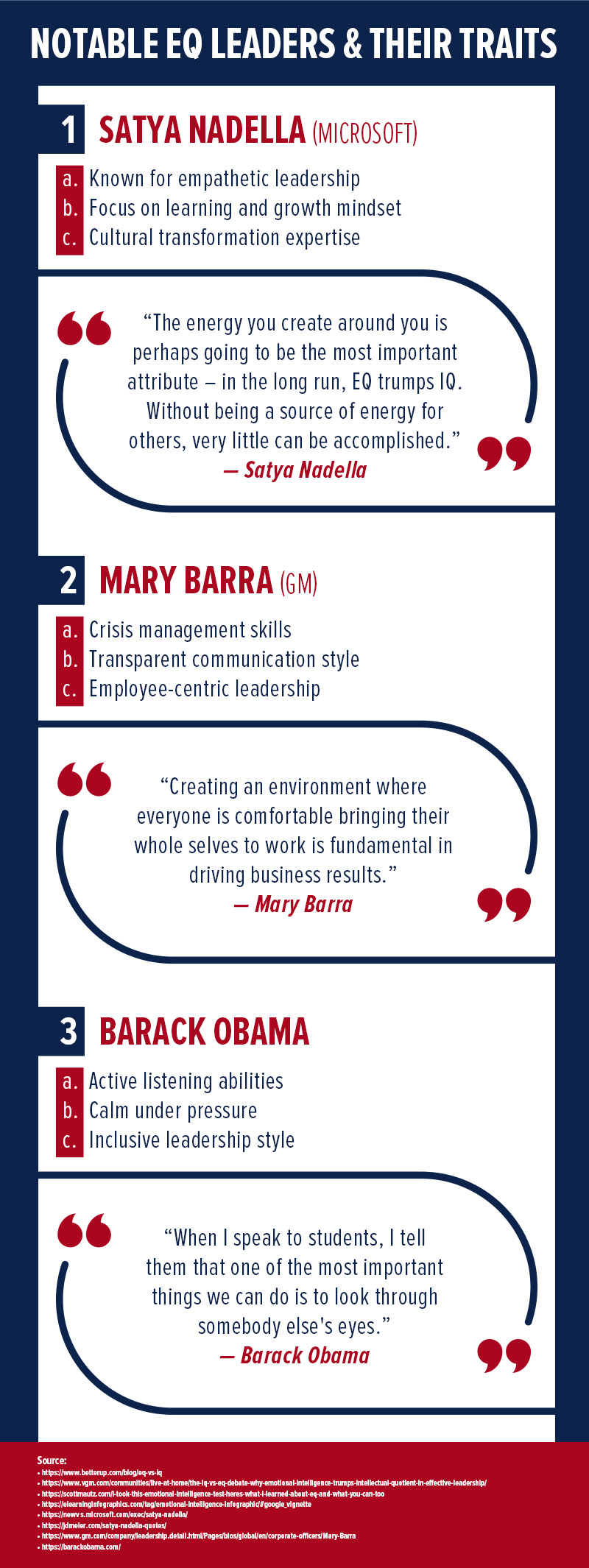
Review: What is Emotional Intelligence?
Emotional intelligence plays a critical role in decision-making within organizations. Leaders with high EQ can assess the facts and figures as well as the emotional climate surrounding a decision. This ability allows them to consider the potential impact on team morale and customer satisfaction. By integrating emotional awareness into your decision-making processes, leaders can make more informed choices that align with both organizational goals and the needs of their teams, fostering trust and collaboration.
View the Full Infographic

--
About the Author: Bill Davis is the Chair of the Bachelor of Arts in Operations Management and Analysis (BAOMA) Advisory Board for the College of Professional Advancement at the University of Arizona Global Campus. Bill is also the Program Chair of the BAOMA program. Bill has extensive experience and education in all aspects of business including consultant, management, leadership, sales, marketing, strategic planning, human resources, and organizational change. He has over three decades of experience working in the beverage industry, specifically in the PepsiCo system, a Fortune 500 company, serving in front, middle management, and executive-level leadership positions. Bill is a pracademic who successfully transitioned his highly flourishing career into academia. He has taught over 300+ courses in higher education online as well as on-ground modalities and has over 20 years of extensive academic experience.
